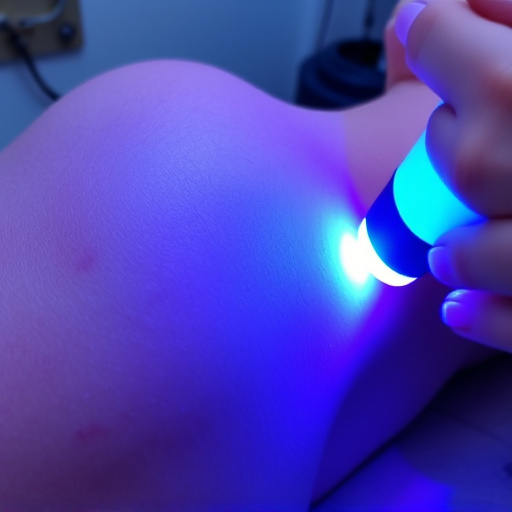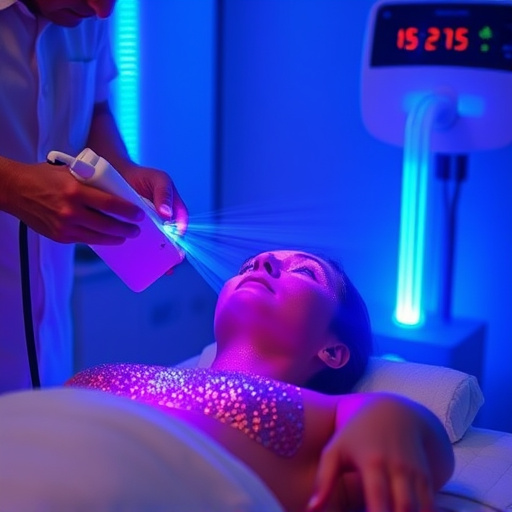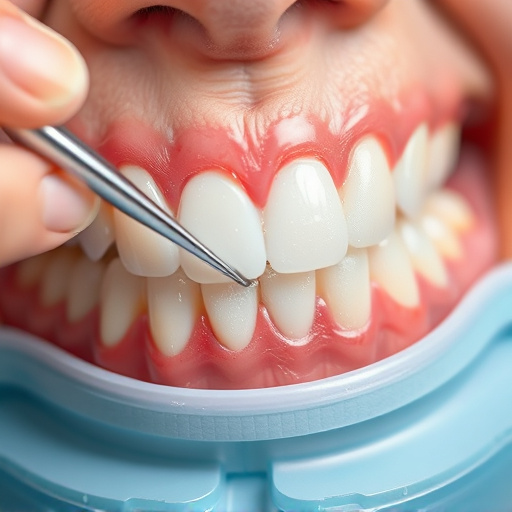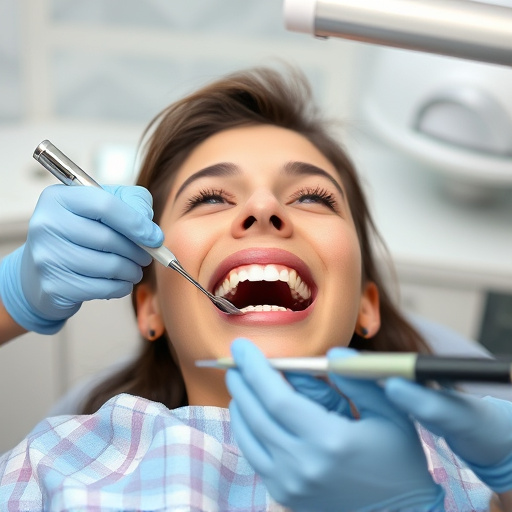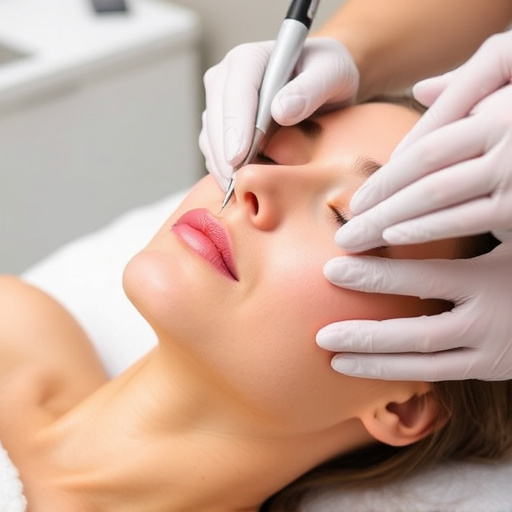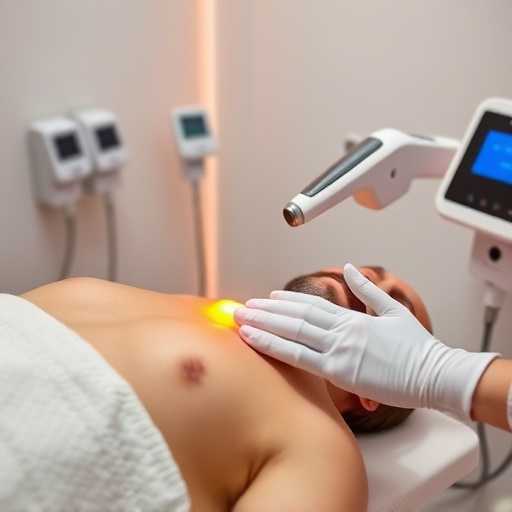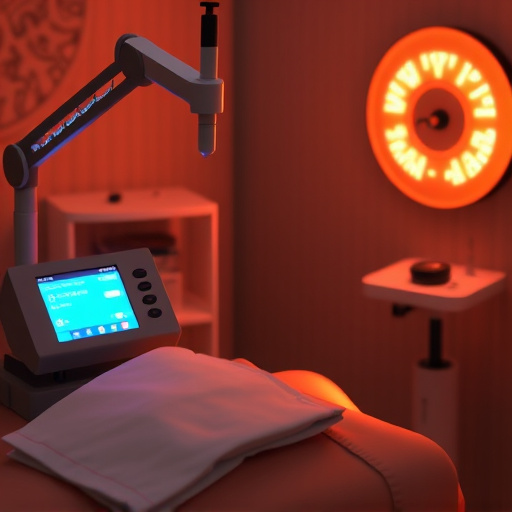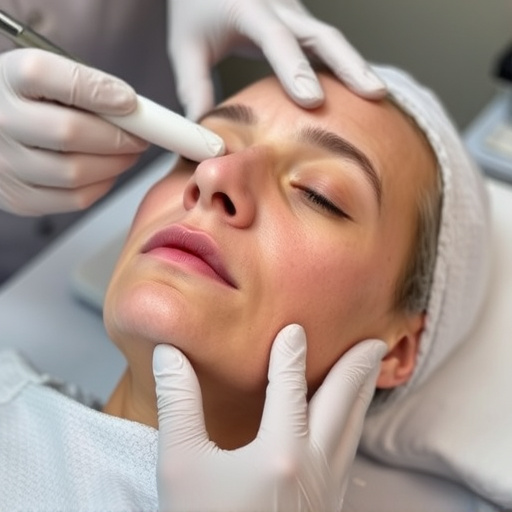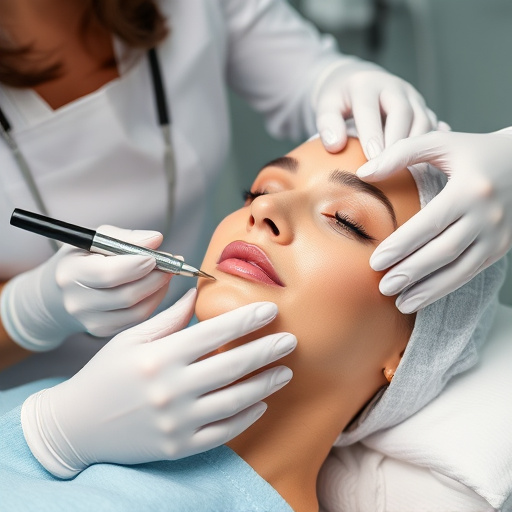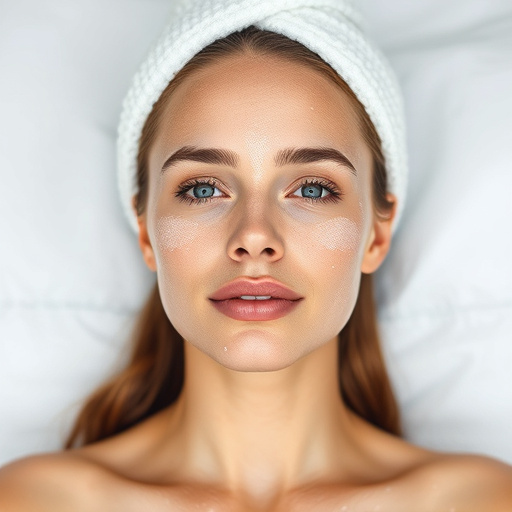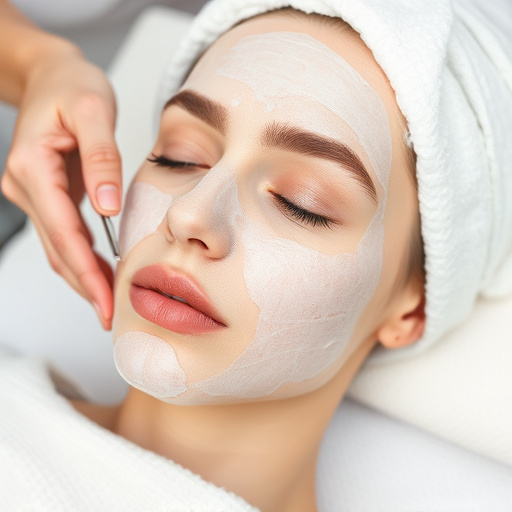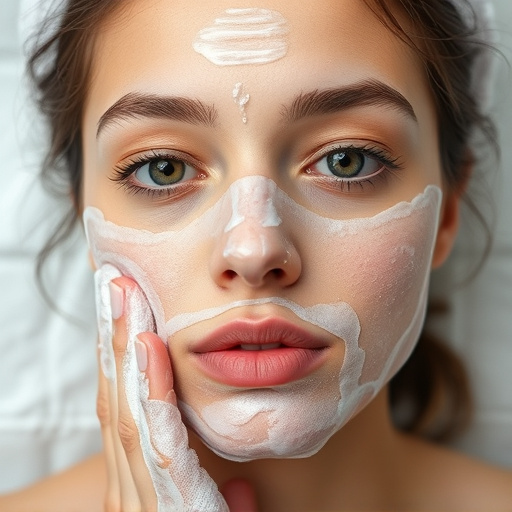Medical grade skincare provides professional solutions for various skin concerns, offering longer-lasting results than OTC alternatives. Treatments include chemical peels, microdermabrasion, and pore refinement techniques, addressing issues like acne, hyperpigmentation, and aging signs. Customized facials and potent active ingredients like antioxidants and retinoids cater to diverse skin needs of teenagers and adults, enhancing texture, tone, and overall complexion. Microneedling further boosts collagen production and product penetration. Personalized plans ensure optimal results tailored to individual skin types.
“Uncover the secrets to achieving healthy, radiant skin with medical-grade skincare. This comprehensive guide provides a clear explanation of this specialized field, designed to address common skin concerns faced by teenagers and adults. From understanding its benefits to exploring key components, we demystify medical-grade routines for optimal skin health. Discover how professional-strength products can transform your skin care journey, offering visible results and long-lasting effects. Dive in as we simplify the world of medical-grade skincare.”
- Understanding Medical Grade Skincare: Definition and Benefits
- Who is It For? Teenagers and Adults Alike
- Key Components and Products in a Medical-Grade Routine
Understanding Medical Grade Skincare: Definition and Benefits
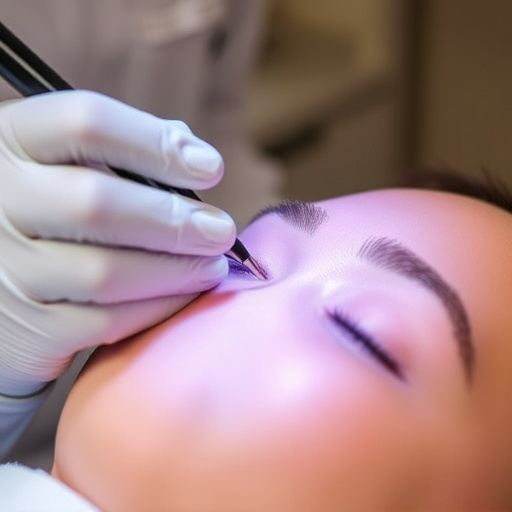
Medical grade skincare refers to products and procedures that are designed, developed, and regulated for professional medical use. These offerings go beyond typical over-the-counter (OTC) skincare lines, offering stronger formulations and more advanced techniques to address specific skin concerns. The term ‘medical grade’ signifies a higher standard of safety, efficacy, and quality assurance.
The benefits of adopting medical grade skincare are numerous. It enables professionals like dermatologists and estheticians to provide effective solutions for various skin conditions, including acne, hyperpigmentation, and scars. Moreover, these treatments often offer longer-lasting results than OTC options, promoting healthier and more radiant skin. Non-surgical treatments, such as chemical peels and microdermabrasion, can enhance the skin’s texture and appearance, while pore refinement techniques help minimize the look of enlarged pores. Skin brightening formulas, enriched with active ingredients, can also lighten age spots and even out skin tone, contributing to a more youthful complexion.
Who is It For? Teenagers and Adults Alike
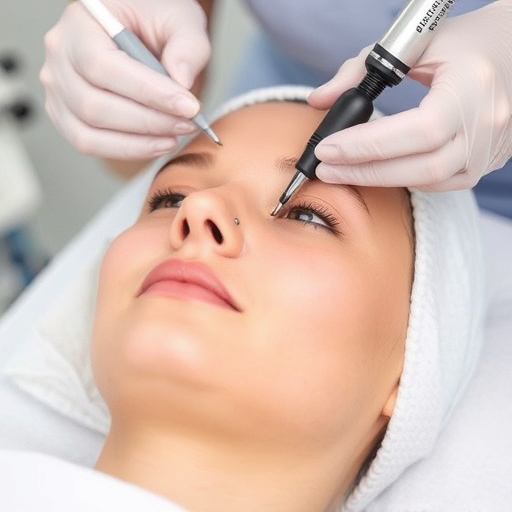
Medical grade skincare is designed to cater to the diverse needs of teenagers and adults alike, making it a versatile solution for all ages. This type of skincare goes beyond over-the-counter products, offering potent formulations and professional application methods aimed at achieving significant improvements in skin health and appearance. Whether struggling with acne, dealing with aging signs, or simply seeking a customized approach to beauty, both teenagers and adults can benefit from medical grade skincare routines.
For teenagers, medical grade skincare can be instrumental in managing and preventing skin issues that often surface during this period of rapid growth and hormonal changes. Adults, on the other hand, find solace in these advanced treatments for addressing specific concerns like hyperpigmentation, fine lines, and wrinkles. Customized facials, a key component of medical grade skincare, allow professionals to tailor treatments based on individual skin types and goals, ensuring optimal results for everyone, regardless of age or skin condition.
Key Components and Products in a Medical-Grade Routine
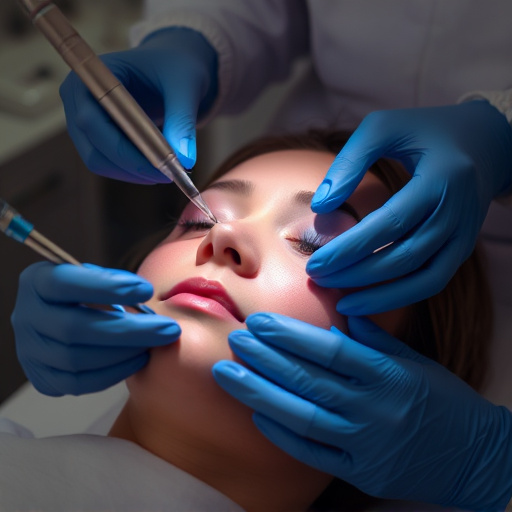
In a medical-grade skincare routine, key components include powerful, active ingredients that deliver visible results. This often involves a combination of antioxidants, retinoids, and alpha hydroxy acids (AHAs) to address specific skin concerns like acne, hyperpigmentation, or fine lines. These ingredients are typically found in professional skincare products formulated with medical-grade quality in mind.
Essential products in such a routine might include cleansers that deeply cleanse without stripping the skin, toners that balance pH levels and prepare the skin for subsequent treatments, and moisturizers packed with hydrating agents to maintain optimal skin barrier function. Microneedling therapy, another popular component, involves using fine needles to create tiny punctures in the skin, stimulating collagen production and enhancing product penetration. Personalized skincare plans, tailored to individual needs and skin types, are also crucial for achieving the best results from medical-grade products.
Medical grade skincare offers a powerful solution for both teenagers and adults, addressing specific skin concerns with potent ingredients and professional-level results. By incorporating key components like retinol, vitamin C, and hyaluronic acid into a tailored routine, individuals can experience improved skin texture, reduced acne, and enhanced overall complexion. This effective approach to skincare ensures that everyone, regardless of age, can achieve healthy, radiant skin.
